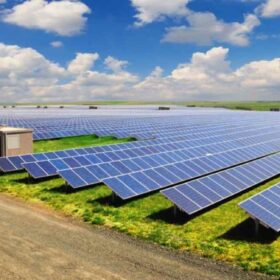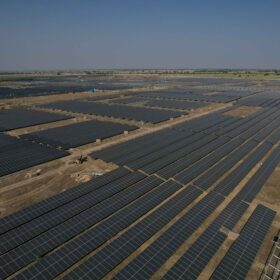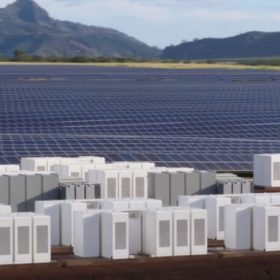IHS Markit has released its latest Global Renewables Markets Attractiveness Rankings for the period ending December 2020. It ranks the United States as the most attractive market for renewable energy investment due to its sound market fundamentals and attractive support scheme. The USA also retained the top spot in attractiveness for investment in solar PV and onshore wind each.
The rankings assessed different countries’ attractiveness for investment in solar PV, onshore wind, and offshore wind. Each country was evaluated on parameters like current policy framework, market fundamentals, investor friendliness, infrastructure readiness, revenue risks, return expectations, and overall opportunity.
The overall renewable rankings were based on a combined score for offshore wind, onshore wind, and solar PV that weighted the technologies based on their expected levels of installations over the next decade.
Germany finished second on the renewable attractiveness ranking. Mainland China, which accounted for more than half of the world’s total non-hydro renewables additions last year, ranked third, weighed down by difficulties in accessing the market. However, it claimed the second spot in attractiveness for solar investment.
India ranked sixth for renewables, third for utility-scale solar PV, ninth for onshore wind, and 15th for offshore wind.
Speaking to pv magazine, Eduard Sala de Vedruna, executive director-Climate and Sustainability Group at IHS Markit, said, ”The only markets ahead of India in the solar rankings were the United States (Rank 1) and mainland China (Rank 2). Both are currently even larger markets for solar than India with more robust support mechanisms, and without the infrastructure preparedness issues and revenue risks.”
Vedruna said, India’s solar rank is boosted by its market size, a very strong target (100 GW by 2022, of which 40 GW is rooftop – expanding to 280 GW by 2030), and a well-defined auction calendar at both federal and state levels to support its ambitions.
However, the Indian solar industry faces various challenges as it scales rapidly to meet the targets. “These include sporadic risks of retroactive tariff renegotiation post-tender as well as curtailment risks in some states, and delays in finding an offtaker (which at times could result in cancellation of the PPA). There is also the possibility of connection bottlenecks as the pace of grid expansion has been unable to keep up with targeted generation projects. Further, intense competition in tenders often leads to very close winning prices and significantly compressed margins for project developers. There are numerous instances of payment delays from financially stressed state utilities, which further compounds revenue risks for investors,” Vedruna stated.
Strong market fundamentals backed by stable procurement mechanisms and long-term clean energy targets made France secure fourth spot, and Spain fifth, in renewables investment attractiveness. Similar factors boosted Japan’s renewables attractiveness to eighth place and the Netherlands to ninth.
“The most attractive markets in IHS Markit rankings have various combinations of a few points in common. These include a significantly large market size and thereby more opportunity for new entrants to capture, availability of attractive subsidies (often with some level of long-term certainty), very attractive market fundamentals, and move to develop and incentivize all technologies including offshore wind,” said Vedruna.
Countries with a strong impetus toward offshore wind got a significant boost, as IHS said the generation source is expected to be the fastest-growing renewable energy technology in the next decade.
The United Kingdom failed to crack the top 10 in the combined rankings due to its relative lack of support for developing onshore wind and PV. It ranked individually as the most attractive market for offshore wind investment.
This content is protected by copyright and may not be reused. If you want to cooperate with us and would like to reuse some of our content, please contact: editors@pv-magazine.com.









1 comment
By submitting this form you agree to pv magazine using your data for the purposes of publishing your comment.
Your personal data will only be disclosed or otherwise transmitted to third parties for the purposes of spam filtering or if this is necessary for technical maintenance of the website. Any other transfer to third parties will not take place unless this is justified on the basis of applicable data protection regulations or if pv magazine is legally obliged to do so.
You may revoke this consent at any time with effect for the future, in which case your personal data will be deleted immediately. Otherwise, your data will be deleted if pv magazine has processed your request or the purpose of data storage is fulfilled.
Further information on data privacy can be found in our Data Protection Policy.